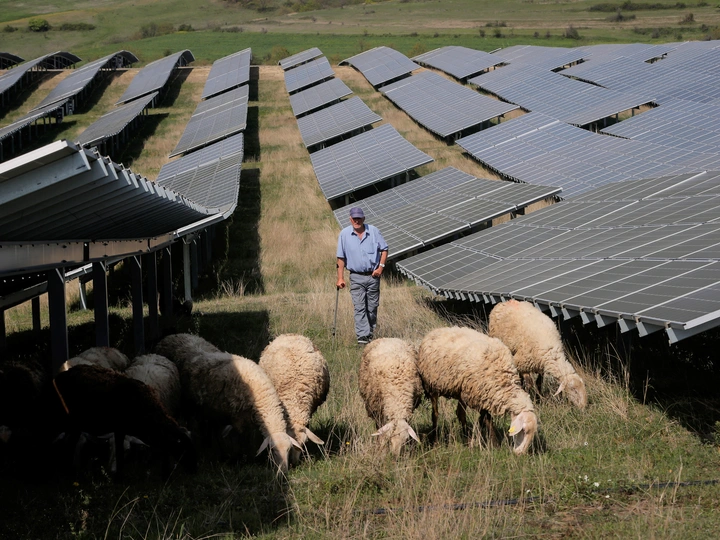Counter-Mapping Energy Futures

Erzë is an architect and researcher who works at the intersection of urbanism, landscape architecture, and ecology. She has been engaged in teaching at various institutions, including the Polytechnic University of Milan, Piacenza, the Polytechnic University of Turin, the School of Design in Milan, Domus Academy Milan, and the Polis University in Tirana. Furthermore, she has served as a guest critic at academic institutions such as Pratt Institute, Rice University, and the IAAC - Institute for Advanced Architecture of Catalonia. She has also conducted workshops at various conferences, researching ecological thinking in urbanism and architecture at the eCAADe Conference 2021 and the CAADRIA Post-Carbon Conference. Additionally, she has published a project in the ACADIA 2020 "Distributed Proximities" conference proceedings and authored a chapter for an upcoming book published by Routledge, titled ‘Handbook on Greening High-Density Cities’.
Erzë has collaborated with various architecture, landscape, and urban design studios in Europe. She was part of the Carlo Ratti Associati team that developed the Manifesta 14 Prishtina Urban Vision and has also collaborated with Manifesta in Prishtina, where she was involved in the design of a new interdisciplinary center in Prishtina - Center for Narrative Practice. Erzë also served on the jury for the Manifesta 15 Barcelona Open Call.
Erzë completed her master's studies in architecture at Politecnico di Milano, holds a professional certificate from UC Berkeley, and has recently conducted research on socio-ecological transition as part of the master in advanced studies in territorial and urban design focused on socio-ecological transition at ETH and EPFL.
Erzë has recently established the SRD Institute, an institute that explores landscape, urbanism, and ecology in the context of climate change, addressing the deficiency of spatial integration in climate-related policies.
Kosovo and the Western Balkans, heavily reliant on coal, are transitioning to renewables. By 2031, Kosovo targets 35% renewable energy, phasing out coal by 2050.
Numerous solar and wind parks will be established; such large-scale transition projects will require significant spatial, social, and ecological transformations and changes in land use.
To enable the energy transition, land is (re)classified. This land (re)mapping of territories for their renewable energy investment potential involves categorizing land as ‘underutilized’, ‘vacant’, or even ‘waste’, devaluing existing land uses. Renewable energy parks can be far from innocent. In Greece, wind parks in nature protection areas and farmland have led to ‘green grabbing‘.
The aim is to create countermaps that reflect the current realities of potential energy park sites, considering their social and ecological contexts. This approach doesn’t obstruct renewable energy initiatives but rather explores how they can pave the way for alternative futures. Counter mapping serves as an advocacy tool, documenting and visualizing territories in transition, providing a platform for local communities and ecosystems that might otherwise be overlooked in large-scale energy projects, recognizing the comprehensive value of land beyond just energy generation.
My research will be conducted via the newly-founded Spatial Research and Design Institute (www.srd-insitute.org). The objective of the institute is to explore landscape, urbanism, and ecology in the context of climate change, addressing the deficiency of spatial integration in climate-related policies and discussions. The project imagines Lina as a platform for collaboration and collaborative thinking in the Western Balkans where large-scale energy projects are unfolding, encouraging designers to take responsibility, engage in contextualized research, and develop tools to represent, speculate, and discuss these territories in transformation.